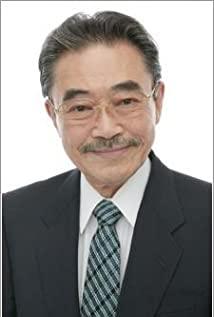The most impressive great-grandmother always reminds me of Atsuhime of the last shogunate in Japan. Maybe because the big river drama starring Miyazaki Aoi left a deep impression in my heart. In this kind and determined samurai family descendant, I see the same Japanese Bushido spirit as Atsuhime: pride and persistence in the family, never give up on beliefs, never tolerate cowardice and betrayal, and be kind and conscience. , perseverance, honesty, devotion, and loyalty are the unshakable beliefs of the characters, and they are the same throughout their lives.
It is such a person, at the age of 90, who is still the absolute backbone of a large family, the heart of the family, and the direction of the soul. It is such a person who, in a critical moment, with the decadent body of his old age, inspires only through the power of words and beliefs. The movie is about saving the world. Although in the end the world was saved by the hero, the great-grandmother started this story, and she gave everyone the firmest belief to stick to it.
It was also such a person who took a fancy to the simple and taciturn male protagonist and entrusted the life of his great-granddaughter to this young boy. Maybe she saw in his sincere and firm eyes the strength that a descendant of the samurai family should have. The power to protect your family and your beliefs in the face of thousands of troops.
What is interesting is that the ancestors of the great-grandmother and the family guarded by Atsushi are opposite sides, but the values and beliefs of the two are so consistent, and they have been passed down in Japan to this day, as the most proud Bushido spirit of the Yamato nation. This reminds me of the time when Atsuhime, as the daughter-in-law of the Tokugawa family, decided to protect her family, she also stood in a hostile position with her father, brother and friends in the Satsuma uprising. But in the end, Edo was able to open the city without blood, and the Satsuma uprising army, who was the enemy of the Tokugawa family, could still be proud of Atsuhime who was born in Satsuma, precisely because Atsuhime pursued the same belief as them, that is to protect herself country, family, and guard the pride and faith of the samurai. So even if history puts them in a position of hostility to each other, they can still respect each other, not only respect, but also be deeply understood by each other, and show each other with sincerity. The Satsuma people still believe that these decisions of Atsuhime are worthy of being the daughter of a samurai family and the daughter of Satsuma. This belief in Japanese traditional culture, and the tolerance born from belief, is what I admire very much about this nation. And in the final analysis, what everyone guards is the belief that the great-grandmother guarded all her life.
In the end, it’s a bit too far. What I want to say is that although the film is an animation, it tells the story of the turmoil in the virtual world endangering the reality and the rescue of people in reality. In fact, it is still telling the best part of Japan’s traditional national spirit. It is because of this that those of us who are no longer children are still touched after watching the film.
View more about Summer Wars reviews











